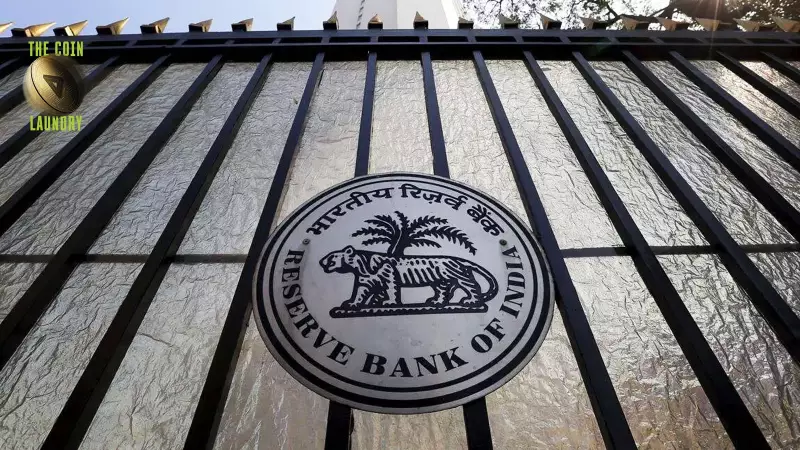
Massive Crypto Fraud Network Uncovered: India to China Money Trail Exposed
Indian cybersecurity authorities have uncovered a sophisticated international network funneling money stolen through cybercrimes to Chinese criminal syndicates using cryptocurrency. The investigation reveals a complex maze stretching from anonymous digital wallets to blacklisted crypto exchanges across multiple countries.
The Indian Cyber Crime Coordination Centre (I4C), the Union Home Ministry's cyber fraud unit, has traced these illicit financial flows to five key countries: Pakistan, China, Dubai (UAE), Cambodia, and Myanmar. This revelation comes from an extensive analysis of at least 144 cases conducted over the past three years.
The Ghaziabad Case: A Blueprint of International Crypto Fraud
Investigators have identified a specific case from Ghaziabad that illustrates the sophisticated modus operandi. A hawala operator successfully funneled approximately Rs 1.30 crore in cash derived from cybercrimes, which ultimately reached Chinese networks engaged in online investment frauds, financial traps, and illegal gambling.
The operation followed this precise pattern: The operator first withdrew money from multiple mule accounts - bank accounts used for illegal activities, typically taken over by criminals either by paying original account-holders or duping them. This cash was then converted to digital assets in Delhi through over-the-counter traders operating outside centralized exchanges and peer-to-peer channels.
The cryptocurrency was subsequently transferred to an unhosted digital wallet belonging to a Dubai-based woman - a non-KYC wallet operating outside the regulated exchange system. From Dubai, the trail led to Huione Pay, a Cambodia-based exchange blacklisted for allegedly aiding cross-border financial crimes. The funds routed through Huione Pay were eventually accessed by Chinese criminal networks.
Alarming Growth in Cybercrime Proceeds
According to official data examined by I4C, the scale of such crimes has shown dramatic growth:
- 28 cases investigated in 2023
- 45 cases investigated in 2024
- 127 cases investigated in 2025 until September 30
The financial impact is staggering. Cybercrime in India is estimated to have generated Rs 16,649.89 crore in just ten months of 2025 alone, rapidly approaching the estimated Rs 22,845.16 crore recorded throughout the entire year of 2024.
Terror Financing and International Connections
The investigation has revealed disturbing connections to terrorist organizations. Money was being collected in the name of terror financing, separatist movements, Covid funding, investment frauds and multi-level marketing scams, according to an official involved in the probe.
In the Rs 500-crore Power Bank loan app scam, where investors were promised high returns, investigators found that Al Qaeda and Hamas were allegedly funded by laundered money. The probe revealed that funds were routed through a Chinese cryptocurrency exchange, with at least 13 accused entities collecting nearly Rs 342 crore from investors between March 2021 and May 2021.
Another case involved a Delhi resident who reported theft of cryptocurrency worth Rs 30 lakh from his digital wallet in 2019. The investigation traced the funds to Giza in Egypt and Palestine, including digital wallets linked to Al Qassam Brigades, the military wing of Hamas, which were already on Israeli authorities' radar.
Southeast Asian Connection and Human Trafficking
According to I4C data, cyber scams targeting Indians are primarily operated by Chinese networks from high-security compounds in Southeast Asia. Disturbingly, over 20,000 Indians are estimated to be working in these scam compounds, many of them victims of human trafficking forced to participate in criminal activities.
The Indian economy faces devastating losses exceeding Rs 1,000 crore every month to such crimes. Following increased international pressure, particularly from the United States, these operations have begun shifting their base from Southeast Asia to Dubai.
The Dubai connection follows a consistent pattern: Cybercrime proceeds are deposited in Indian accounts, and the linked ATM cards are used in Dubai to withdraw cash in dirhams. This money is then used to purchase cryptocurrency, completing the laundering cycle.
The Ministry of Home Affairs has not responded to detailed questionnaires about these findings or the measures being implemented to combat the use of cryptocurrency for funneling cybercrime proceeds. The investigation continues as authorities work to dismantle these sophisticated international criminal networks.






